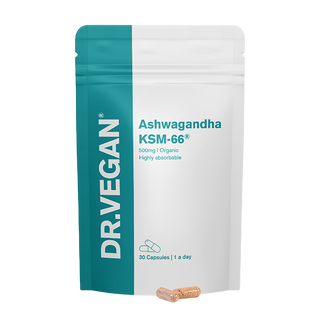Are women's gut microbiome different to men?

The gut microbiome is a diverse community of trillions of bacteria, viruses, fungi, and other microorganisms residing in the gastrointestinal tract. Over time it has become an essential area of study due to its role in overall health.
This dynamic ecosystem is responsible for numerous bodily functions, including digestion, immunity, mental health, and even chronic disease prevention. Every single person has a unique gut microbiome influenced by genetics, diet, environment, and lifestyle. However, recent research suggests that the gut microbiome may differ between men and women due to biological, hormonal, and lifestyle factors. Understanding these differences can offer insights into personalised nutrition, treatment approaches, and disease prevention strategies.
Why does everyone have a different microbiome?
The gut microbiome is influenced by a variety of factors, including age, diet, genetics, stress, antibiotic use, environment, and even the mode of delivery at birth. Each person has their own unique combination of microorganisms, which makes their microbiome distinct. These differences result from individual choices, environmental exposures, and biology. For example, two people exposed to the same diet or environment may have entirely different gut ecosystems because of genetic variations and other internal factors. Understanding these variations is essential for determining why individuals respond differently to similar treatments or diets.
Gender differences in the gut microbiome: how much do we know?
While there is growing awareness of the importance of the gut microbiome, the differences between the gut microbiomes of men and women is still an emerging area of research. Though progress has been made, it remains a hugely under-explored field with many unanswered questions. Current research suggests that biological and hormonal differences significantly influence the composition and diversity of the gut microbiome in men and women. Some studies indicate that women may have a higher diversity of gut bacteria compared to men, potentially due to hormonal fluctuations that affect bacterial populations. Read about the gut-vagina connection in 'how your gut and vagina are linked'.
One key factor contributing to these differences is sex hormones. Both oestrogen and testosterone play a role in shaping the gut microbiome. These hormones can alter the composition of gut bacteria by promoting or inhibiting the growth of certain bacterial strains. For instance, oestrogen has been shown to enhance the diversity of beneficial gut bacteria, while testosterone may promote a different bacterial balance. These hormonal variations can contribute to the observed sex differences in susceptibility to certain health conditions, including inflammatory diseases and metabolic disorders. You may also enjoy reading 'The impact of your gut on your heart'.
Dietary differences between men and women for a healthy gut microbiome
Diet is a significant factor influencing gut health, and men and women may benefit from different dietary approaches to optimise their gut microbiome. While research is ongoing, some evidence suggests that the microbiome composition differs in response to dietary patterns commonly adopted by men and women. For instance, women are more likely to adopt diets rich in plant-based foods, while men tend to consume higher amounts of protein and fat. The gut microbiome responds differently to these foods, leading to distinct microbiome compositions between the men and women.
Debloat & Detox

Men and women may also metabolise certain foods differently due to hormonal differences, affecting how nutrients are absorbed and processed in the gut. Women may benefit from a diet high in fibre, fermented foods, and prebiotics, which promote beneficial bacteria growth and improve digestion. Men, on the other hand, may need higher amounts of protein to support muscle recovery while maintaining a balanced gut microbiome.
Ultimately, while general dietary advice applies to both genders, understanding these nuanced differences can lead to more tailored and effective nutrition strategies to support gut health.
Lifestyle considerations for men and women to support their gut microbiome
Beyond diet, lifestyle plays a pivotal role in shaping the gut microbiome, and men and women may benefit from different lifestyle strategies to support their gut health. Exercise, for instance, is a well-known factor influencing gut bacteria diversity. However, the types of exercise that benefit the gut microbiome can differ between men and women. Women may find benefits in low- to moderate-intensity forms of exercise, such as yoga or swimming, which can also reduce stress, while men may benefit from strength training or high-intensity interval training (HIIT) to support gut diversity and overall health. Read more about the best foods to support your training plan in 'nutrition for working out'.
Sleep is another critical factor, and men and women may have different sleep patterns and stress levels, which can impact the gut microbiome. Women tend to experience more disruptions in sleep due to hormonal changes related to pregnancy, menopause, or stress, which can negatively affect gut health. Ensuring sufficient sleep and stress management through mindfulness or relaxation practices can improve gut balance. You may also enjoy reading the latest customer survey in sleep, including how poor sleep impacts mental and physical wellbeing and what you can do to help through diet and exercise.
Stress itself has a profound effect on the gut-brain connection, influencing the microbiome's composition and function. In a DR.VEGAN® survey of over 12,000 people, only 4% described themselves as 'stress-free,' with 78% saying they feel stressed at least once a week*. Since men and women often experience and respond to stress differently, their gut microbiomes may react uniquely to stress-inducing events. Managing stress through tailored approaches—whether meditation, physical activity, or therapy—can help maintain gut homeostasis and improve overall well-being.
Conclusion
While men and women share many similarities in their gut microbiomes, differences driven by hormonal activity, diet, and lifestyle play a significant role in shaping these microbial communities. Men and women exhibit unique responses to diet, stress, and exercise, highlighting the need for gender-specific approaches to support gut health. Understanding these differences can pave the way for personalised nutritional strategies and medical interventions to address gut-related disorders and overall health. As research in this area continues to evolve, the gut microbiome's role in gender health offers exciting opportunities for discovery and innovation.
*Customer survey of 12,204 people by DR.VEGAN® and an online survey of 545 men and women, UK nationally representative, conducted in January 2023, including 125 customers who take Stay Calm®. All survey findings reflect our own efforts and have not been influenced or verified by any external organisations or third-party entities.
View our range of award-winning probiotics, vitamins and supplements.
You may also enjoy reading:


















